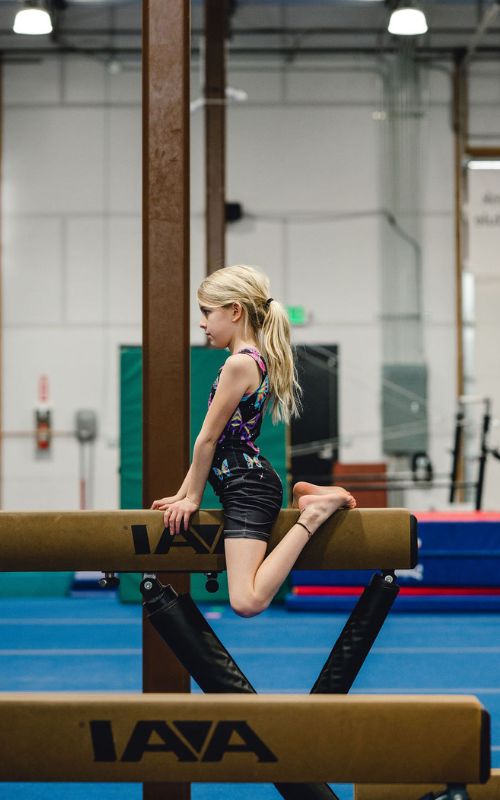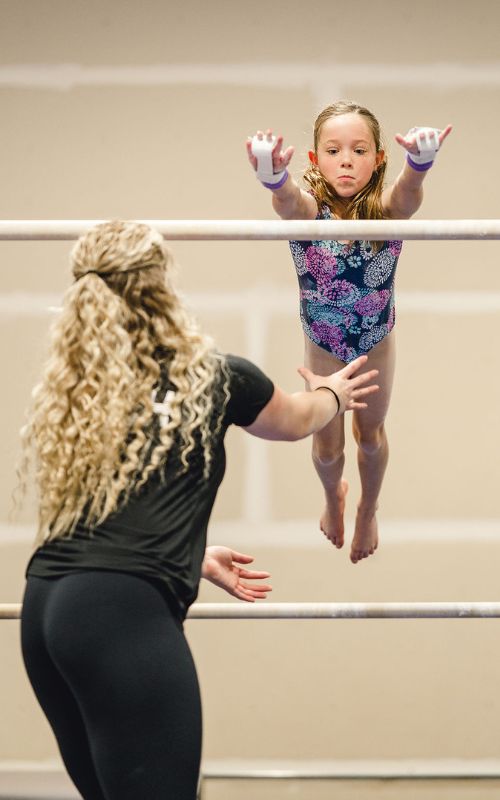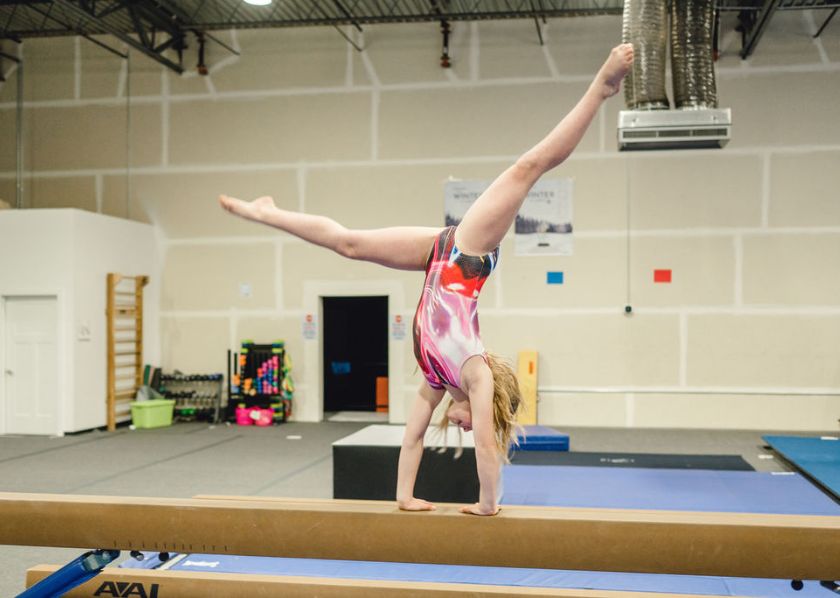Introduction
Gymnastics is a sport that demands not only physical strength but also mental resilience. While it’s exhilarating to see young gymnasts overcome challenges, fear and anxiety are often part of the journey. For many athletes, these feelings surface when they’re faced with a new skill, performing in front of others, or after experiencing a setback. Fear and anxiety can impact gymnasts of all ages and skill levels, from beginners to advanced competitors.
Feeling fear and anxiety is completely normal in a challenging sport like gymnastics. Understanding that everyone experiences these feelings at some point can help young gymnasts manage them without shame. In this post, we’ll share practical tips for gymnasts and their parents to build confidence, overcome mental blocks, and keep enjoying the sport they love.
Understanding Fear and Anxiety in Gymnastics
To help gymnasts overcome fear and anxiety, it’s helpful to understand these feelings. Fear is usually tied to a specific situation or skill, such as attempting a difficult flip or balancing on the beam. It’s an immediate response, often related to a perceived risk. Anxiety, on the other hand, is a more generalized feeling of worry or nervousness, which can linger over time, impacting overall performance and enjoyment.
In gymnastics, common triggers for fear and anxiety include the fear of falling or injury, the pressure of performing well, and comparison to peers. Trying a new skill, especially one that feels risky, can trigger fear, while anxiety might stem from anticipation or self-doubt. These feelings are part of the natural learning curve in gymnastics. Learning to manage them not only improves performance but also contributes to a gymnast’s personal growth and resilience.

Tips for Gymnasts – How to Overcome Fear and Anxiety
1. Start Small and Build Up
One of the best ways to manage fear is by breaking skills down into smaller, manageable steps. For example, if a gymnast is afraid of standing on the high beam, we can start on the lowest beam and gradually work up to higher ones. Each small success builds confidence and reduces the intimidation of the skill. By focusing on achievable milestones, gymnasts can gain the confidence they need to take on more complex moves.
2. Practice Visualization Techniques
Visualization is a powerful tool for overcoming fear. It involves mentally rehearsing a skill or routine in detail, picturing it going smoothly and confidently. For instance, before attempting a challenging routine, a gymnast can close their eyes, take a few deep breaths, and visualize themselves completing each move perfectly. They can imagine their form, breathing rhythm, and balance, seeing each step clearly in their mind. Visualization helps create a mental blueprint for success, which can calm nerves and build readiness.
3. Use Positive Self-Talk
Negative thoughts often fuel fear and anxiety. Countering these thoughts with positive affirmations can shift a gymnast’s mindset. Simple phrases like “I am strong and capable” or “I’ve practiced and can do this” can help replace self-doubt with confidence. Gymnasts can create a list of affirmations to recite before practice or a performance. Positive self-talk reinforces their belief in their abilities and helps override anxious or fearful thoughts.
4. Focus on Breathing and Mindfulness
Breathing exercises are a practical way to calm nerves before a performance or while learning a challenging skill. Gymnasts can try a simple technique like deep belly breathing: inhale slowly through the nose, filling the belly with air, then exhale slowly through the mouth. This type of mindful breathing slows the heart rate and brings a sense of calm. Additionally, practicing mindfulness—staying present and focusing only on each step in the routine—can help gymnasts manage anxious thoughts and stay grounded during practice.

Tips for Parents – Supporting Your Gymnast Through Fear and Anxiety
1. Listen and Validate Their Feelings
Parents play a crucial role in helping young gymnasts navigate fear and anxiety. Listening actively and without judgment allows gymnasts to express their feelings openly. Avoiding dismissive comments, such as “Don’t worry, it’s not a big deal,” can make a significant difference. Instead, acknowledge their emotions by saying things like, “I understand that it’s scary, and it’s okay to feel that way.” This validation reassures gymnasts that their fears are normal and encourages open communication.
2. Encourage Progress, Not Perfection
Setting high standards can unintentionally increase pressure. Focusing on small improvements and celebrating every bit of progress, rather than expecting flawless performance, can reduce performance anxiety. For instance, if a gymnast has improved their form on a skill, even if they haven’t mastered it yet, parents can celebrate that achievement. Recognizing effort and resilience helps gymnasts build self-esteem, reinforcing the idea that growth is more important than perfection.
3. Avoid Comparing to Other Gymnasts
Comparison can create feelings of inadequacy and heighten anxiety. Every gymnast has their unique strengths and journey, so encourage them to focus on their own progress rather than comparing themselves to others. Remind them that everyone develops at their own pace and that personal improvement is more important than matching or exceeding someone else’s skills.
4. Promote a Growth Mindset
A growth mindset—seeing challenges as opportunities to grow—is crucial for young gymnasts. When parents model this mindset and encourage their gymnast to view setbacks as a normal part of learning, it builds resilience. Statements like, “Mistakes are part of the process,” or, “You’re learning each time you try,” reinforce this outlook. This approach helps gymnasts see each attempt as a learning experience rather than something to fear.
Conclusion
Fear and anxiety are natural parts of the gymnastics journey, but they don’t have to stand in the way of progress. With a steady, step-by-step approach, gymnasts can build confidence and develop resilience over time. Supportive guidance from parents and coaches plays a key role in helping young athletes navigate these challenges.
Overcoming these mental hurdles takes patience and persistence, but each step forward strengthens gymnasts both mentally and physically. If fear or anxiety is a hurdle, consider trying a few of these strategies to see what helps. The coaches and community at Elevate Sports Center are here to help every gymnast find their confidence and joy in the sport.

Try it FREE!
We offer one free trial class to all students who are interested in our programs. From NinjaZone to Tumbling, give one of our classes are shot. After all…. it’s FREE!


